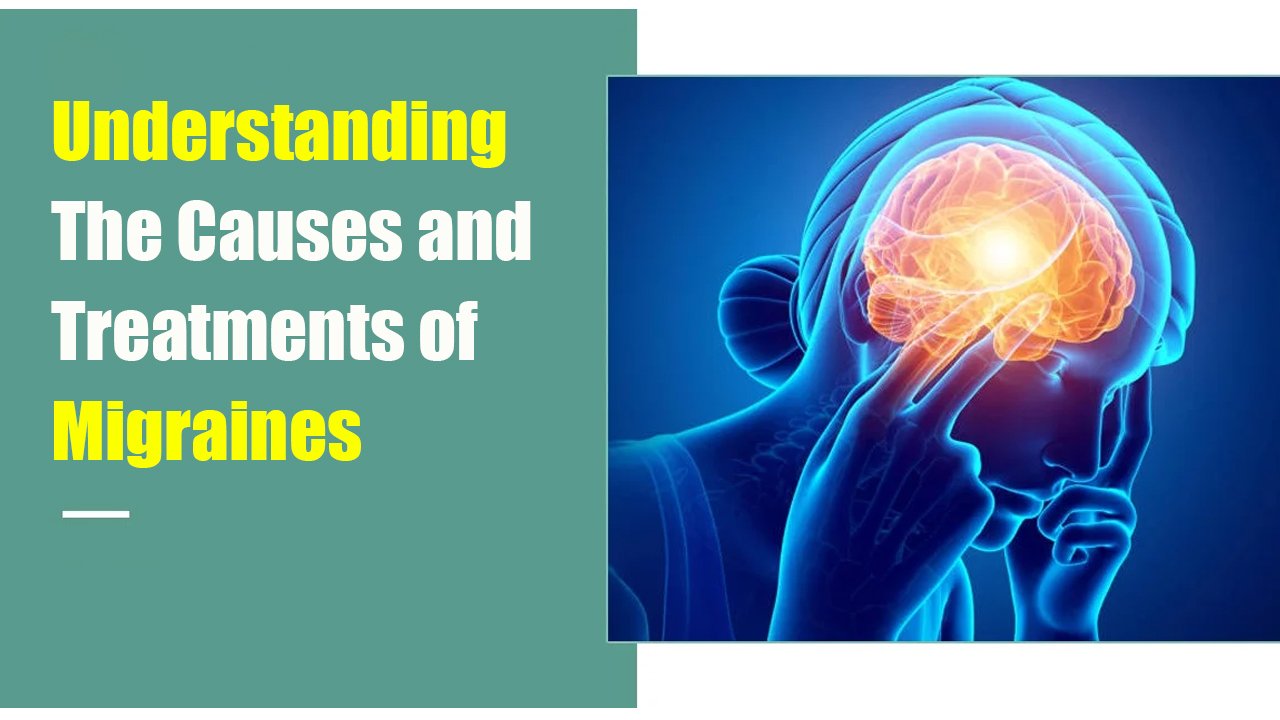
Migraines are complex neurological conditions characterized by recurrent moderate to severe headaches, often accompanied by other symptoms such as nausea, vomiting, sensitivity to light and sound, and visual disturbances.
Migraines are complex neurological conditions characterized by recurrent moderate to severe headaches, often accompanied by other symptoms such as nausea, vomiting, sensitivity to light and sound, and visual disturbances. The exact cause of migraines is not fully understood, but several factors may contribute to their occurrence:
Genetics: Migraines tend to run in families, suggesting a genetic predisposition to the condition. Certain genetic variations may make individuals more susceptible to experiencing migraines.
Neurochemical imbalance: Changes in the levels of neurotransmitters such as serotonin, which plays a role in regulating pain sensation and mood, have been associated with migraines. Imbalances in other neurotransmitters such as dopamine and norepinephrine may also contribute to migraine attacks.
Triggers: Various environmental, dietary, hormonal, and lifestyle factors can trigger migraine attacks in susceptible individuals. Common triggers include stress, certain foods (such as aged cheeses, chocolate, and processed meats), caffeine withdrawal, hormonal fluctuations (such as those occurring during menstruation or pregnancy), changes in sleep patterns, dehydration, and sensory stimuli like bright lights or strong odors.
Abnormal brain activity: Migraines may involve abnormal electrical activity in the brain, which can lead to changes in blood flow and inflammation of blood vessels in the brain.
Treatment for migraines typically focuses on relieving symptoms and preventing future attacks. Here are some common approaches:
Over-the-counter pain relievers: Non-prescription medications such as ibuprofen, aspirin, or acetaminophen may help alleviate mild to moderate migraine pain. Some medications combine these ingredients with caffeine, which can enhance their effectiveness.
Prescription medications: For more severe migraines or those that do not respond to over-the-counter treatments, prescription medications may be necessary. These include triptans, which work by constricting blood vessels and blocking pain pathways in the brain, and ergotamine derivatives, which have a similar mechanism of action.
Preventive medications: If you experience frequent or debilitating migraines, your doctor may prescribe preventive medications to reduce the frequency and severity of attacks. These may include beta-blockers, calcium channel blockers, antidepressants, anticonvulsants, or Botox injections.
Lifestyle modifications: Identifying and avoiding triggers can help prevent migraine attacks. Keeping a headache diary to track potential triggers and patterns can be helpful. Additionally, maintaining a regular sleep schedule, staying hydrated, managing stress through relaxation techniques or therapy, and making dietary changes may also help reduce the frequency and severity of migraines.
Alternative therapies: Some people find relief from migraines through complementary and alternative therapies such as acupuncture, biofeedback, yoga, massage, or herbal supplements. While research on the effectiveness of these approaches is mixed, some individuals may benefit from incorporating them into their migraine management plan.
It's important to work closely with your healthcare provider to develop an individualized treatment plan tailored to your specific needs and medical history. They can help determine the most appropriate treatment options based on the frequency, severity, and characteristics of your migraines.




